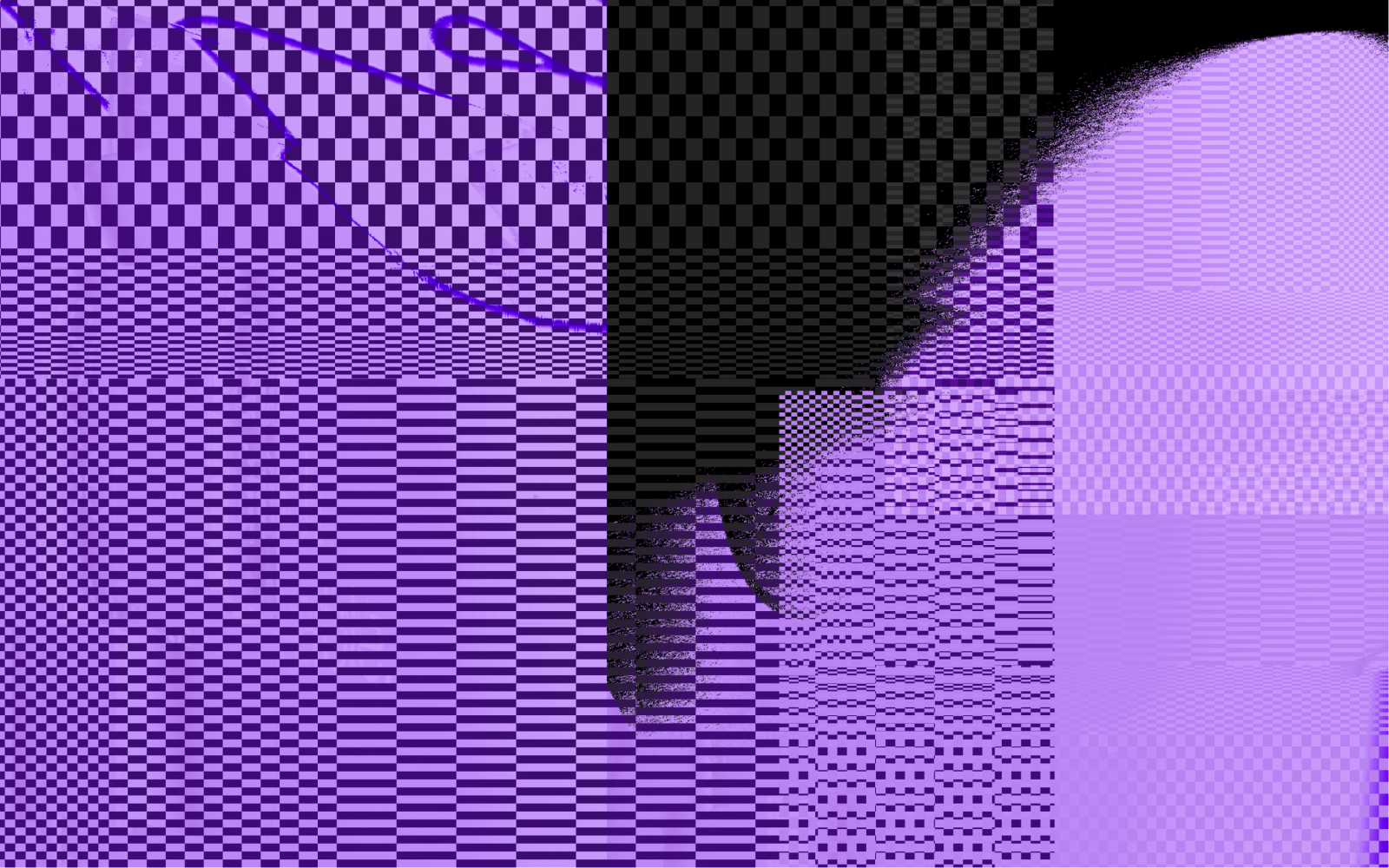- Event
- Conference
Entangled Transparency 3.0
Online conference
Thu, March 09, 2023 10:00 am – 1:00 pm CET
- Location
- Online
- Language
- English
Accessible from March 9, 2023, 10 am.
We recommend using a Chrome browser.
How is blockchain technology changing culture? And what are the consequences for our sovereignty? At the online conference the ZKM | Karlsruhe, Hyundai Artlab and the Goethe-Institut Korea are looking for answers.
The topic of web3 has been discussed extensively recently. Since the hype around NFTs (non-fungible tokens) peaked in 2021, blockchain technology has been on everyone's lips - even though it was first used several years ago, back in 2014.
Computation and automation are relentlessly reshaping the political world order on a planetary scale, eroding national and personal sovereignties, and spawning new forms of governance. Along with the climate crisis, computation’s exponential rise and as a consequence, the demand to alter our understanding of the political realm is one of the greatest issues of our time. Climate change and sovereignties are both hybrid constructs, embedded in social and environmental contexts. Sovereignty, whether national or personal, whether a question of geopolitics or self-determination should be constantly negotiated to find equilibrium, thus it depends on the free flow of information.
Currently our tool to stay connected beyond national borders functions just like a monarchy with a few kings and aristocrats. While it is obvious in most of the world, that a monarchy is an obsolete political system, and it only exists in a symbolic way in the 21st Century, the internet still functions just like it. Instead of a centralized structure, a decentralized, federal solution would lead to a transition from monarchy to democracy, which would foster self-determination in the online space. It is on us whether we leave the current post-surveillance information societies, being controlled by a handful of companies, and elaborate a decentralized "trustless" and peer-to-peer solution. The web3.0 promises a blockchain-based solution for this structural problem.
Conference Program
-
10:00 am to 1:00 pm (CET): Keynotes, performances and discussion
10:00 a.m. – 10:05 a.m. (CET) Introduction common.garden
Constant Dullaart, artist, and founder of common.garden10:05 – 10:25 am (CET) Keynote 1
Bogna Konior, author and scholar specializing in digital culture, philosophy of technology, and new media
10:25 – 10:50 am (CET) Keynote 2
Maurice Benayoun, new media artist, curator, and theorist
10:50 – 11:05 am (CET) Presentation »Endless Poem« *
Peter Weibel, artistic-scientific Chairman, ZKM | Karlsruhe (deceased)
Christian Lölkes, artist and hacker at ZKM | Karlsruhe11:05 – 11:45 am (CET) Manifesto Performances
by Jaya Klara Brekke, Crypton, Primavera De Filippi , Sarah Friend, Kyriaki Goni, Operator, Bhavisha Panchia, and Bi Xin
11:45 – 12:15 pm (CET) Manifesto Performances – Institutions 3.0
by Ruth Catlow, Michael Connor, Sabine Himmelsbach, Yannick Hofmann, Chuang Wei Tzu, and Hyunjung Woo
12:15 – 1:00 pm (CET) Final discussion, moderated by Michael Connor
* Peter Weibel and Christian Lölkes had conceived the »Endless Poem« as an exemplary Web 3.0 prototype that entails online collaboration. Unfortunately, due to the unexpected passing of Peter Weibel, the work itself could not be realized. But the idea could be captured in a pre-recorded video statement.
Fragments of the infrastructure that would enable worldwide decentralization are laid out, even if their specifics seem elusive and inaccessible to many, and their sustainability is a question that shall be urgently addressed. Beyond these fundamental issues, the question arises whether, and how, we define our personal and national sovereignties in a scenario, when a decentralized network model succeeds? If we delegate the safeguarding of our privacy to algorithmic agents, how do we keep our self-determination on an acceptable level?
In his book »The Neganthropocene« (2018) Bernard Stiegler has stated, that "we cannot impose total transparency without then falling into the totalitarianism of computational totalization, which dissolves the individual into the calculable and computable whole, where everything finds itself reduced to pure calculation."
With this quote in mind the event raises the question of transparency, its contradictions, challenges, and risks, within a new type of web. Together with international practitioners and theoreticians we aim to start a dialogue about alternatives to web2.0, currently in use.
As an exemplary web3.0 prototype, an endless poem, inspired by Peter Weibel, accompanies the discursive program. The renowned media artist and CEO of ZKM, starts the online collaborative text. The thread then is taken up by any self-assigned contributor, almost in the spirit of a cadavre exquis game, only in this case the previously written entries remain visible.
